Related Research Articles
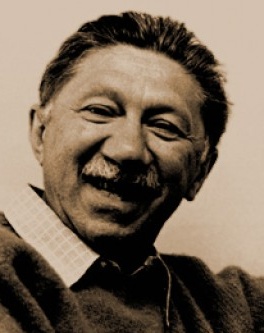
Abraham Harold Maslow was an American psychologist who created Maslow's hierarchy of needs, a theory of psychological health predicated on fulfilling innate human needs in priority, culminating in self-actualization. Maslow was a psychology professor at Brandeis University, Brooklyn College, New School for Social Research, and Columbia University. He stressed the importance of focusing on the positive qualities in people, as opposed to treating them as a "bag of symptoms". A Review of General Psychology survey, published in 2002, ranked Maslow as the tenth most cited psychologist of the 20th century.

Economic materialism can be described as either a personal attitude that attaches importance to acquiring and consuming material goods or as a logistical analysis of how physical resources are shaped into consumable products.

Martin Elias Peter Seligman is an American psychologist, educator, and author of self-help books. Seligman is a strong promoter within the scientific community of his theories of well-being and positive psychology. His theory of learned helplessness is popular among scientific and clinical psychologists. A Review of General Psychology survey, published in 2002, ranked Seligman as the 31st most cited psychologist of the 20th century.
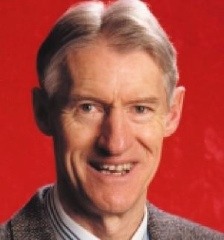
Michael Argyle was one of the best known English social psychologists of the twentieth century. He spent most of his career at the University of Oxford, and worked on numerous topics. Throughout his career, he showed strong preferences for experimental methods in social psychology, having little time for alternative approaches such as discourse analysis.

Daniel Todd Gilbert is an American social psychologist and writer. He is the Edgar Pierce Professor of Psychology at Harvard University and is known for his research with Timothy Wilson of the University of Virginia on affective forecasting. He is the author of the international bestseller Stumbling on Happiness, which has been translated into more than 30 languages and won the 2007 Royal Society Prizes for Science Books. He has also written essays for several newspapers and magazines, hosted a non-fiction television series on PBS, and given three popular TED talks.
Timothy DeCamp Wilson is an American social psychologist and writer.

Narcissism is a self–centered personality style characterized as having an excessive preoccupation with oneself and one's own needs, often at the expense of others.
Patrick J. McGrath, OC, FRSC FCAHS is a Canadian psychologist noted for his contribution to research on childhood pain.
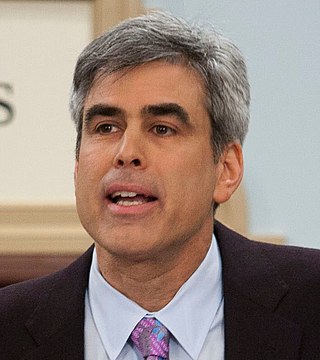
Jonathan David Haidt is an American social psychologist and author. He is the Thomas Cooley Professor of Ethical Leadership at the New York University Stern School of Business. His main areas of study are the psychology of morality and moral emotions.

John Terrence Cacioppo was the Tiffany and Margaret Blake Distinguished Service Professor at the University of Chicago. He founded the University of Chicago Center for Cognitive and Social Neuroscience and was the director of the Arete Initiative of the Office of the Vice President for Research and National Laboratories at the University of Chicago. He co-founded the field of social neuroscience and was member of the department of psychology, department of psychiatry and behavioral neuroscience, and the college until his death in March 2018.
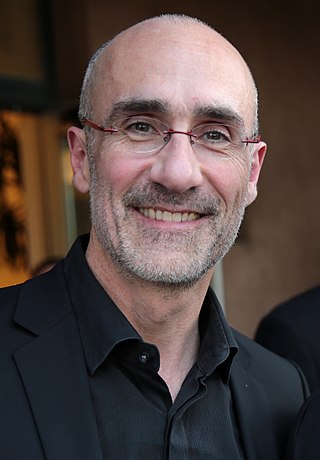
Arthur C. Brooks is an American author, public speaker, and academic. Since 2019, Brooks has served as the Parker Gilbert Montgomery Professor of the Practice of Nonprofit and Public Leadership at the Harvard Kennedy School and at the Harvard Business School as a Professor of Management Practice and Faculty Fellow. Previously, Brooks served as the 11th President of the American Enterprise Institute. He is the author of thirteen books, including Build the Life You Want: The Art and Science of Getting Happier with co-author Oprah Winfrey (2023), From Strength to Strength: Finding Success, Happiness and Deep Purpose in the Second Half of Life (2022), Love Your Enemies (2019), The Conservative Heart (2015), and The Road to Freedom (2012). Since 2020, he has written the Atlantic’s How to Build a Life column on happiness.
Edward Francis Diener was an American psychologist and author. Diener was a professor of psychology at the University of Utah and the University of Virginia, and Joseph R. Smiley Distinguished Professor Emeritus at the University of Illinois, as well as a senior scientist for the Gallup Organization. He is noted for his research over the past thirty years on happiness, including work on temperament and personality influences on well-being, theories of well-being, income and well-being, cultural influences on well-being, and the measurement of well-being. As shown on Google Scholar as of April 2021, Diener's publications have been cited over 257,000 times.
Paul Clayton Vitz is an American psychologist who is a Senior Scholar at Divine Mercy University in Sterling, Virginia. He is emeritus professor of psychology at New York University. His work focuses primarily on the relationship between psychology and Christianity.
Dan P. McAdams is personality psychologist and the Henry Wade Rogers Professor in the Department of Psychology at Northwestern University.

Jean Marie Twenge is an American psychologist researching generational differences, including work values, life goals, and speed of development. She is a professor of psychology at San Diego State University, author, consultant, and public speaker. She has examined generational differences in work attitudes, life goals, developmental speed, sexual behavior, and religious commitment.
William Keith Campbell is an American social psychologist known for his research on narcissism. He is a professor in the Department of Psychology in the University of Georgia's Franklin College of Arts and Sciences. He completed his BA at University of California, Berkeley, MA from University of California, San Diego, PhD at University of North Carolina at Chapel Hill. He has published over 120 peer-reviewed papers and a number of books, including The Handbook of Narcissism and Narcissistic Personality Disorder: Theoretical Approaches, Empirical Findings, and Treatments and The Narcissism Epidemic: Living in the Age of Entitlement.
Muzafer Sherif was a Turkish-American social psychologist. He helped develop social judgment theory and realistic conflict theory.
Nicky Hayes is an established psychologist and author, who has written over 25 books on psychology, management and neuroscience and made significant contributions to psychology education, research methods and applied psychology.
June Gruber is an American psychologist. She is associate professor of Psychology and Neuroscience and Director of the Positive Emotion and Psychopathology Laboratory at the University of Colorado Boulder. She is known for her research on positive affectivity and mental health. She is a licensed clinical psychologist.
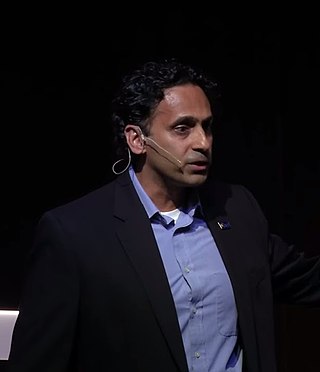
Regan A. R. Gurung is an American psychologist and award-winning author.
References
- ↑ Lok, Corie (2001). "American dream debunked". Nature . doi:10.1038/news010215-14.
- ↑ Ciccarelli, Saundra K.; White, J. Noland. Psychology. Pearson Education. p. 388.
- ↑ Interviews with Myers Archived 2011-10-07 at the Wayback Machine , Counterpoint Foundation
- ↑ About the Author - David G. Myers Archived 2014-02-21 at the Wayback Machine , Worth Publishing
- ↑ "Open Syllabus: Explorer".